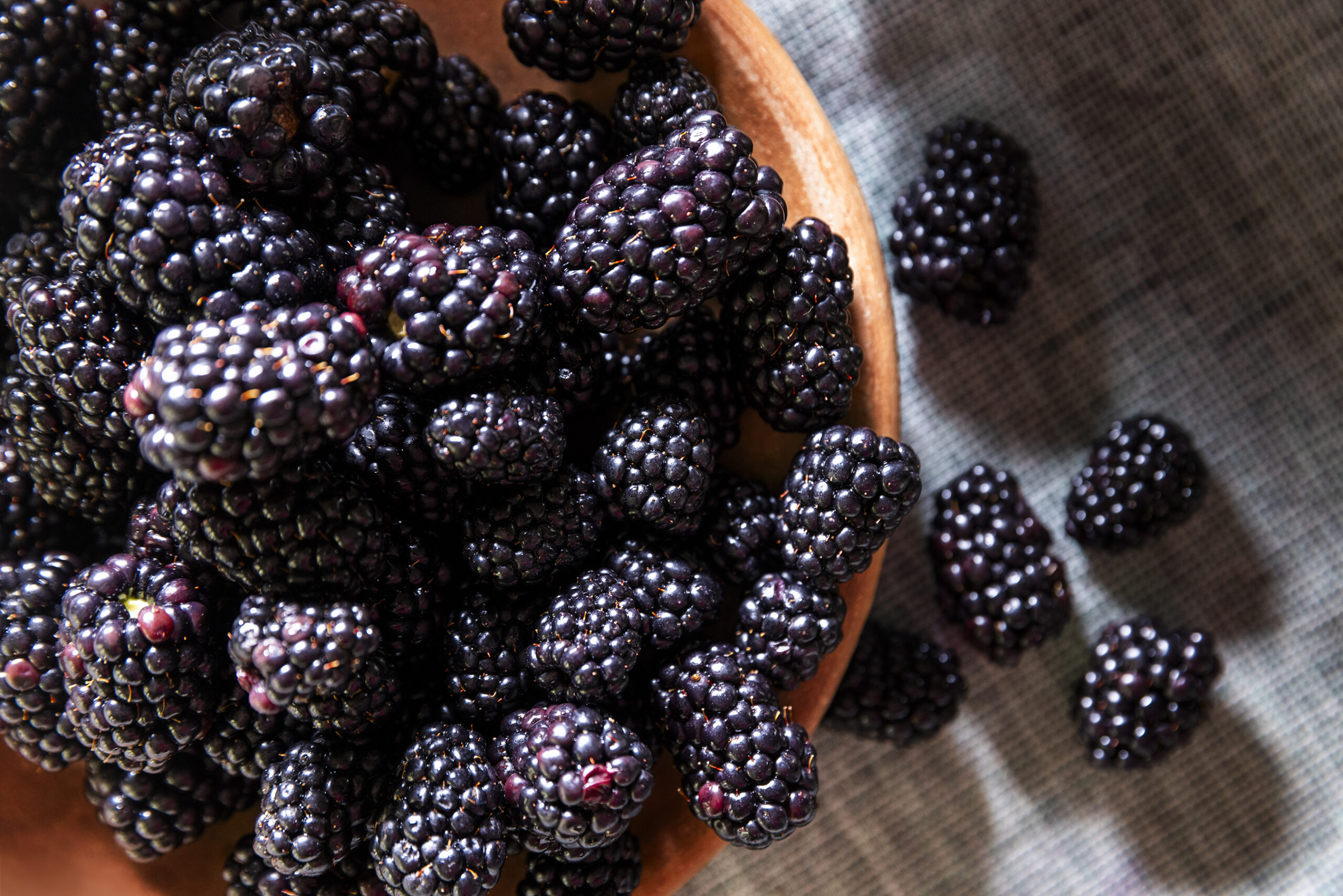The Health-Promoting Potential of Berry Fruits

Berry fruits, including blueberries, cranberries, strawberries, raspberries, and blackcurrants, have gained significant attention due to their rich nutritional profile and potential health benefits. Berries are rich in fiber, vitamins, minerals, and bioactive compounds that improve our health.
Antioxidant Powerhouses
One of the main benefits of berry fruits is their high antioxidant content, which includes Vitamins A, C, K, resveratrol, and polyphenols. The antioxidant phenolic compounds, known as anthocyanins, are responsible for their vibrant blue and red colors and potent antioxidant properties. Antioxidants help protect our cells from oxidative stress and accelerated aging caused by harmful molecules called free radicals, which can damage our cells and disrupt our DNA.
Anti-Inflammatory Effects
Inflammation is a natural response by the body that occurs from injury or infection. However, chronic inflammation like that caused by poor food choices, lack of sleep, obesity, or high blood sugar can contribute to the development of heart disease, cancer, and other diseases. Berries have the potential to curtail this inflammation. For example, cloudberry supplementation in a mouse model of obesity showed a reduction in systemic inflammation found throughout the body and liver inflammation. Another study demonstrated that blackcurrant consumption improved inflammatory markers and cardiac function in mice with type 2 diabetes.
Cardio-Metabolic Health
Berries also significantly influence markers of cardiometabolic health. While the evidence is still evolving, several studies suggest that consuming berries may help improve blood pressure, artery endothelial function, lipid profile, and inflammatory markers. Chokeberries, more commonly known as Aronia berries, were found to have a positive effect against hypertension, dyslipidemia, and oxidative stress. A 10-week study with blackcurrants in mice with type 2 diabetes demonstrated a significant improvement in glucose, insulin, and insulin resistance (HOMA-IR) indices, diabetic blood markers, cardiac function markers and cardiac thickening, and elevated levels of inflammatory cytokines in cardiac tissue.
Gut health
Phenolic compounds in berries are metabolized in the colon by gut bacteria. They also stimulate favorable bacteria growth and reduce pathogenic bacteria growth. This process of stimulating beneficial bacterial growth suggests that polyphenols act as pre-biotics.
Cognitive Function
Blueberries and hawthorn berries have also demonstrated positive outcomes in various cognitive domains, supporting their consumption as a preventive measure against cognitive decline in healthy populations. Epidemiological studies suggest that the gut microbiota may be involved in the development of neurodegenerative diseases like dementia. Berries offer various benefits, from their antioxidant and anti-inflammatory properties to their possible effects on cardiovascular health and cognitive function. Including a variety of berries in your diet can be an excellent way to support overall health and well-being. Researchers caution that berry extracts and powders of the whole fruit may be more beneficial than some extracts and juices. Antioxidants, such as the polyphenols in berries, are bound to the fibers found on the surface of the berries. Whether enjoyed fresh, frozen, or incorporated into smoothies, yogurts, or desserts, berries are a delightful and nutritious addition to any meal.
Get our easy and delightful blackberry jam recipe and watch Cooking With The Seasons.

Linda Illingworth, RDN, CSSD, is the Registered Dietitian at Lifewellness Institute, a medical practice specializing in wellness, where she provides clinical care and nutritional guidance for patients and corporate clients. An expert in functional nutrition, Linda is known for her practical advice to find the best nutritional path to achieve specific health goals. As a certified specialist in Sports Nutrition, Linda also has specialized training in food sensitivities, supplementation, wellness, thyroid and cardiovascular nutrition. Linda holds a B.S. in Nutrition from California State University Long Beach and completed her dietetic internship at St. Luke’s Hospital, Wisconsin. Her special interest in nutrition and wellness began in college with her father’s death, the result of cardiovascular disease and thus created a life-long desire to learn. Linda is frequently consulted for her depth and breadth of nutritional knowledge, has developed nutrition curriculum for popular destination health spas, National University, consults for non-profit nutrition programs, and can be found in print and online media.
References: 1. De Amicis R., et al. (2022). Systematic Review on the Potential Effect of Berry Intake in the Cognitive Functions of Healthy People. Nutrients. 14(14):2977. Link 2. Olechno E., et al. (2022). Chokeberry (A. melanocarpa (Michx.) Elliott)—A Natural Product for Metabolic Disorders? Nutrients. 14(13):2688. Link 3. Venturi S., et al. (2023). Berry Dietary Interventions in Metabolic Syndrome: New Insights. Nutrients. 15(8):1906. Link
